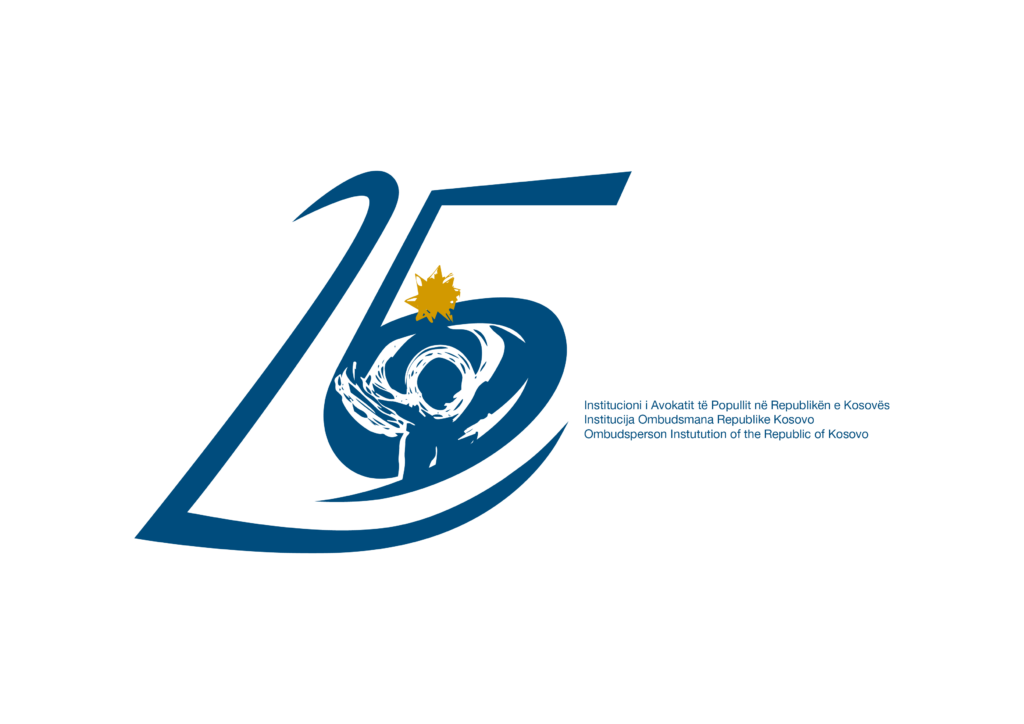
Press release regarding the visit of the Ombudsman to the Kosovo Specialist Chambers in The Hague
Prishtina, November 20th, 2025 – The Ombudsperson of the Republic of Kosovo, Mr. Naim Qelaj, accompanied by Ms. Shqipe Ibraj Mala, Director of the National Preventive Mechanism against Torture, and Mr. Burim Tahiri, Director of the Department for Legal Affairs and Investigation, conducted a monitoring visit to the Kosovo Specialist Chambers in The Hague. During this visit, the Ombudsperson monitored the court hearings held on November 12th and 13th. He also interviewed the four accused persons in the detention centre, held meetings with representatives of the Registry’s Victims’ Participation Office, and met with the defense teams of the accused. In addition, he carried out a visit to the Embassy of the Republic of Kosovo in The Hague.
The purpose of the visit was to assess compliance with constitutional and international human rights standards, particularly the right to a fair trial, in accordance with Article 31 of the Constitution and Article 6 of the European Convention on Human Rights (ECHR).
The visit was conducted under significant restrictions and with full monitoring of interviews in the detention centre. Such monitoring violates the standards of the European Committee for the Prevention of Torture (CPT), which requires that visits be private, without the presence of security staff, and without restrictions on the collection of information.
On the other hand, National Human Rights Institutions enjoy an unrestricted mandate for monitoring and oversight. Any attempt by a public authority to request that they refrain from monitoring constitutes a violation of international obligations, undermines the rule of law, and weakens the effective protection of human rights.
The Ombudsperson expresses his view that the lack of accountability of the Kosovo Specialist Chambers toward the Republic of Kosovo creates a unique and unprecedented situation. The Kosovo Specialist Chambers continue to operate without an effective reporting or oversight mechanism from the institutions of the Republic of Kosovo, despite having been established by a decision of the Assembly of the Republic of Kosovo. This lack of accountability obstructs the realisation of democratic oversight standards, as guaranteed by the principles of good governance and public accountability.
The reporting of the Kosovo Specialist Chambers to other states, outside Kosovo’s constitutional framework, undermines institutional transparency, creates a climate of fear among the public, and contradicts the requirements of the European Court of Human Rights (ECtHR) for institutions to operate on the basis of the rule of law and democratic oversight of public functions.
The Ombudsperson notes that the low level of transparency in court proceedings and the manner in which the Specialist Chambers operate, as well as the limited information available, prevent the public and institutions from accessing the information necessary to ensure that fair trial standards and accountability are being upheld.
The Ombudsperson recalls that the principle of equality of arms guarantees a fair judicial process. Failure to respect this principle raises serious concerns regarding compliance with the obligations deriving from Article 6 of the ECHR and Article 31 of the Constitution.
The Ombudsperson notes that the ECtHR’s jurisprudence requires evidence to be objective, reliable, and verifiable. In this regard, it is evident that the admission as evidence of books written in a completely unstructured context and lacking a minimum standard of objectivity constitutes a flagrant violation of the right to a fair trial.
It remains deeply concerning that the Specialist Chambers have not provided clarification regarding the admission of evidence obtained by the authorities and intelligence services of the Republic of Serbia, as this undermines the possibility of verifying the legitimacy of such evidence, the integrity of the evidence itself, and its credibility, given the serious lack of establishment of a standard of proof consistent with criminal procedure standards.
The Ombudsperson further notes that the monitoring of communications and family visits, the restriction of family visits, and other limitations during prolonged pre-trial detention, as defined by the European Convention for the Prevention of Torture, constitute serious violations and infringement of Article 3 of the ECHR and undermine the rights to privacy and family life (Article 8 of the ECHR).
Moreover, the absence of an independent complaints’ mechanism outside the structure of the Specialist Chambers and the lack of an independent oversight mechanism allows the activities of the Specialist Chambers to be carried out without transparency and without institutional control, thereby undermining the right to effective protection in proceedings. ECtHR standards and the practice of democratic countries require external monitoring of judicial processes, especially when they affect fundamental human rights. Periodic reporting and structured monitoring would strengthen the integrity of the judicial process and public trust.
The Ombudsperson reiterates that despite the legal limitations of the mandate regarding the Specialist Chambers, the institution will continue to monitor developments in The Hague, seeking to engage independent international human rights mechanisms to monitor the process and enable effective democratic oversight.
He calls on domestic authorities and international partners to pay due attention to the issues identified, in order to enhance transparency and accountability, ensure equality of arms in the proceedings, improve detention conditions, and strengthen public trust in justice and the rule of law. The implementation of these standards remains essential for guaranteeing a fair trial, the protection of fundamental rights, and the integrity of the judicial process, in line with the Constitution of the Republic of Kosovo and the European Convention on Human Rights.
The Ombudsperson will prepare an opinion regarding all matters and observations arising from this visit. This opinion will be addressed to all European Union mechanisms and to domestic authorities.

